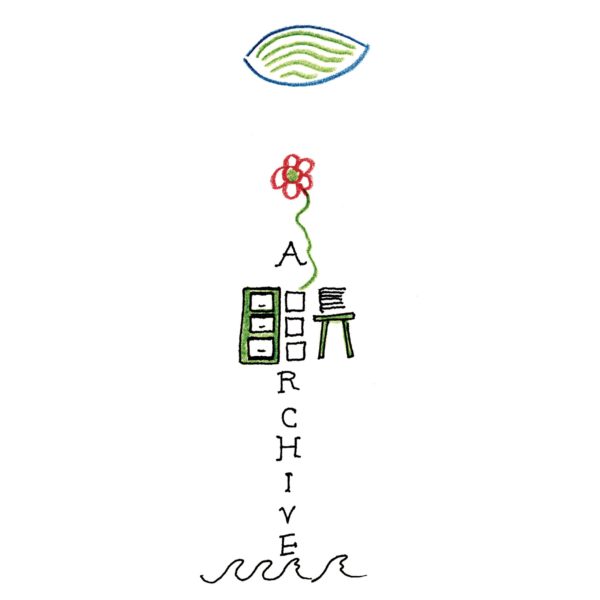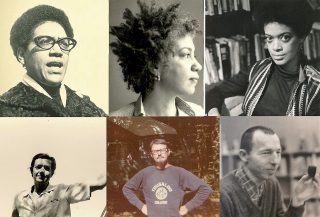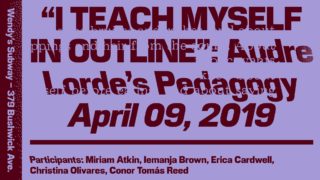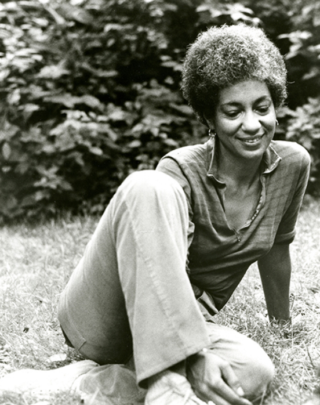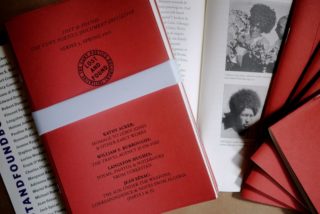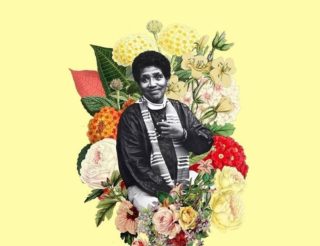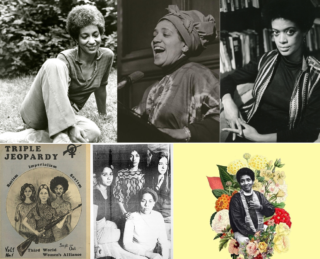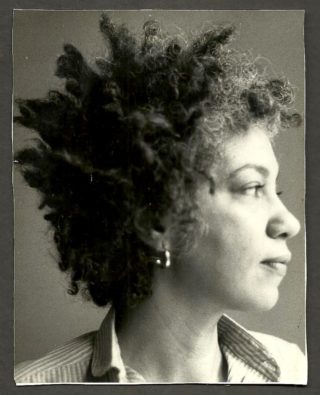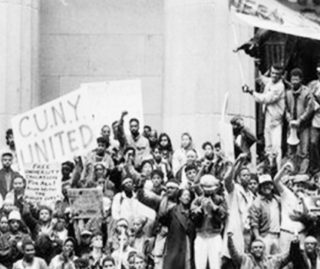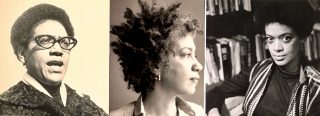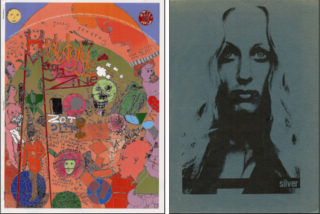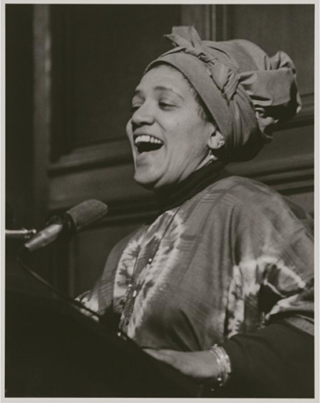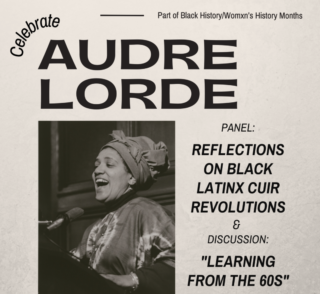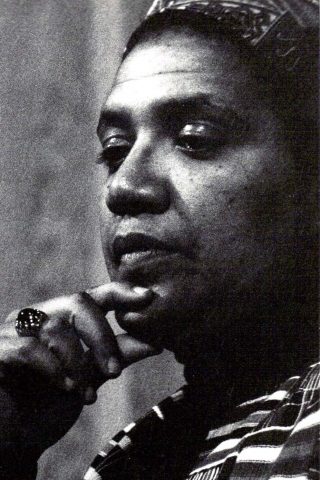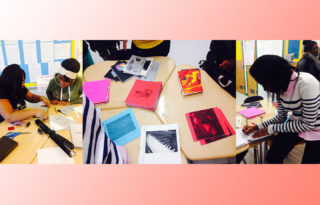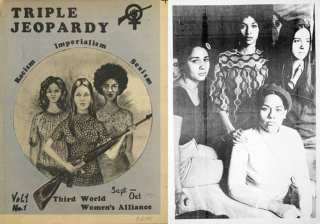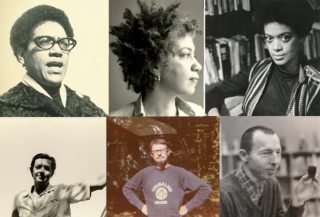Launching Audre Lorde and June Jordan
We are thrilled to announce that the first two of our publications from our CUNY Pedagogy Series that are now available on Manifold are Audre Lorde: "I teach myself in outline,” Notes, Journals, Syllabi, & an Excerpt from Deotha and June Jordan "Life Studies," 1966-1976.
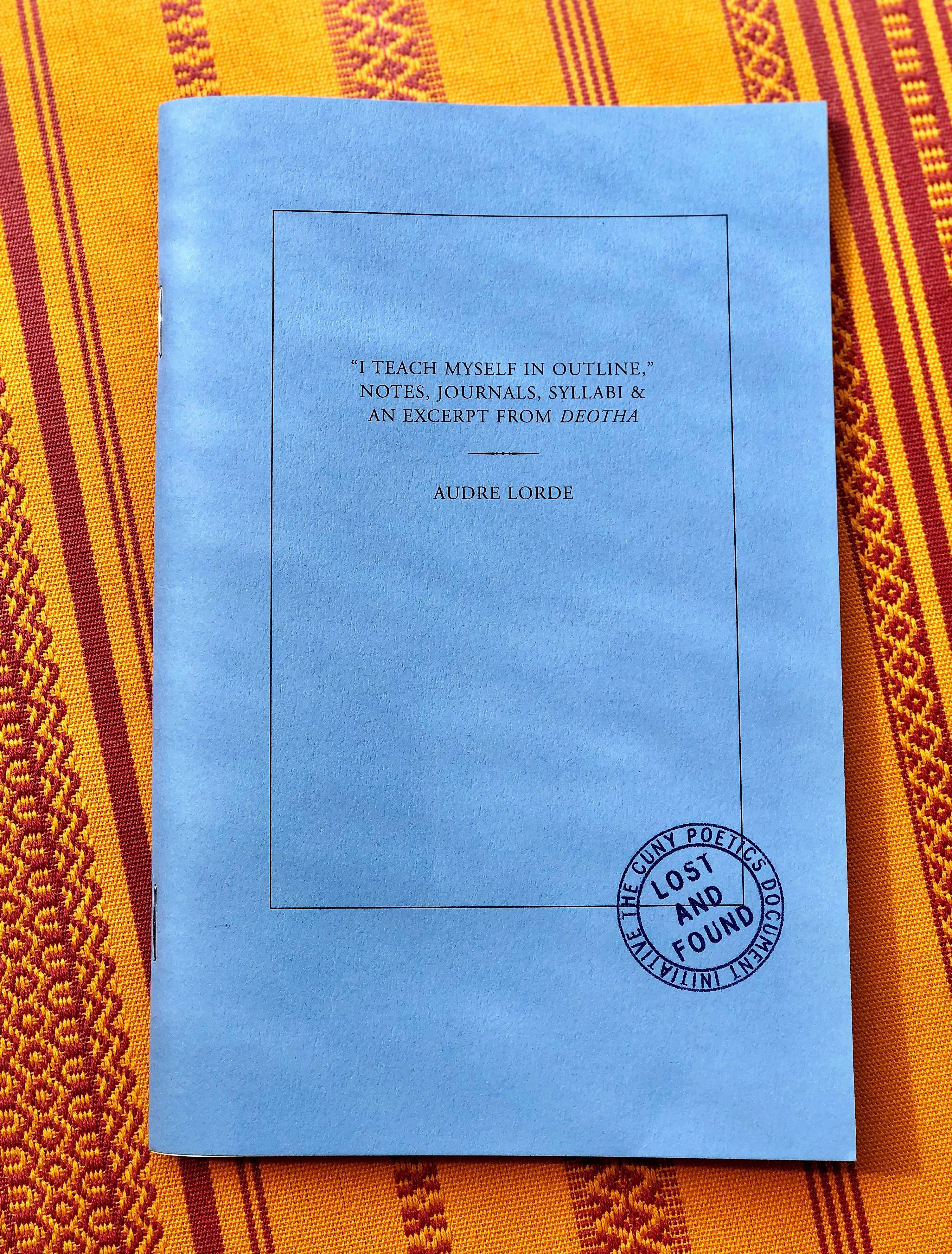
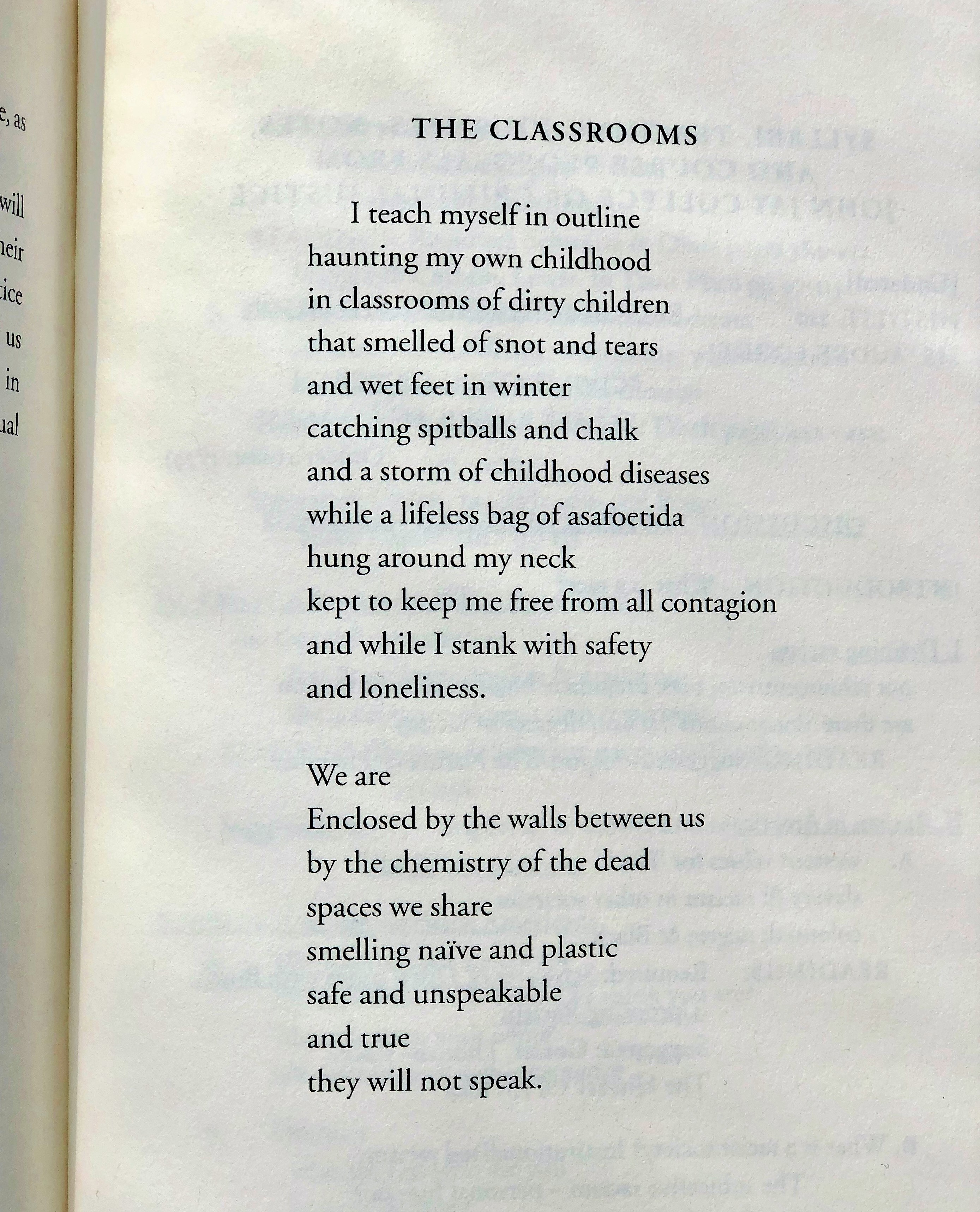
We are launching these digital versions of our physical texts as part of an ongoing effort to make our pedagogy series available to all who might use them in their daily liberation, education or self-care practices. Lost & Found texts will be available for custom classroom use, self-study, and group engagement and annotation.
You can read Audre Lorde’s work here and June Jordan’s here or below:
AUDRE LORDE: “I TEACH MYSELF IN OUTLINE,” NOTES, JOURNALS, SYLLABI & AN EXCERPT FROM DEOTHA
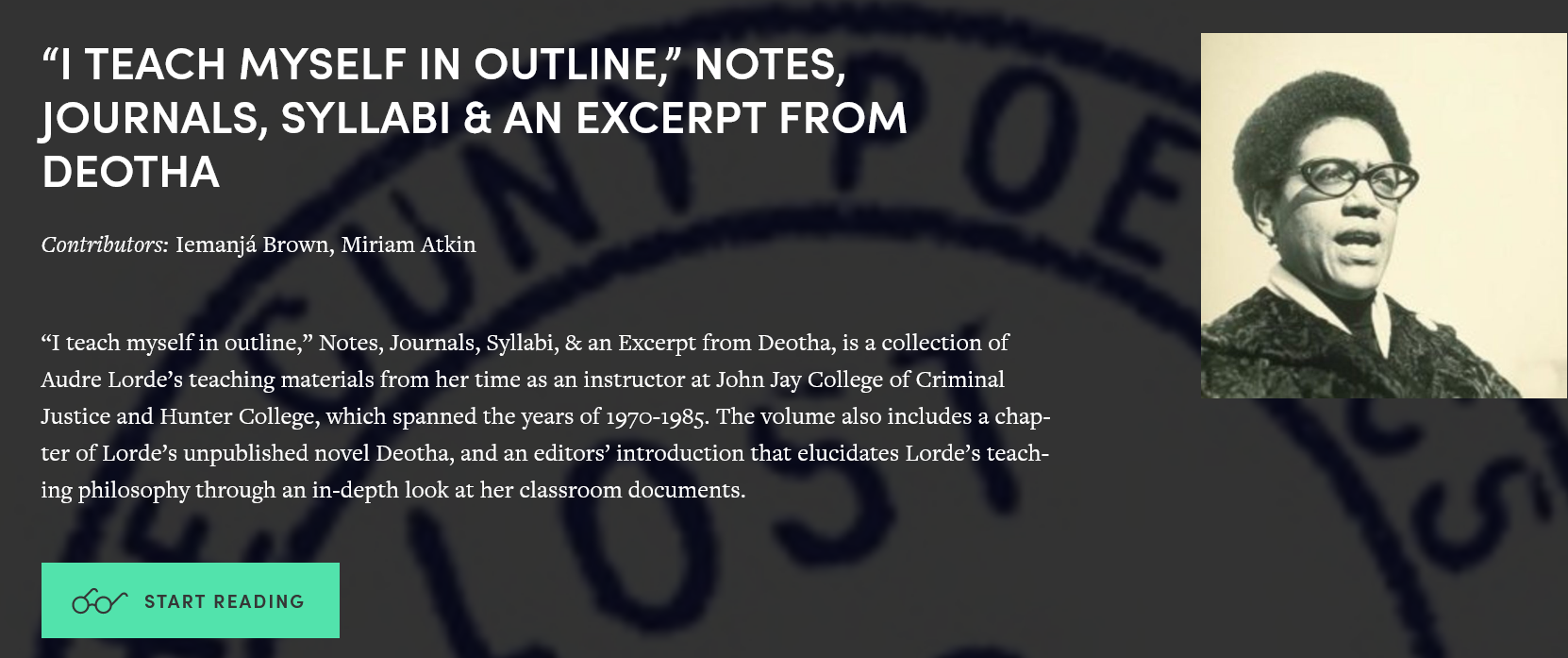
- I TEACH MYSELF IN OUTLINE; NOTES, JOURNALS, SYLLABI & AN EXCERPT FROM DEOTHA: AUDRE LORDE
- INTRODUCTION
- THE CLASSROOMS
- SYLLABI, TEACHING JOURNALS, NOTES, AND COURSE PROPOSALS FROM JOHN JAY COLLEGE OF CRIMINAL JUSTICE
- SYLLABI, OUTLINES, AND TEACHING NOTES FROM HUNTER COLLEGE
- EXCERPT FROM DEOTHA: "BATH/SCHOOL/PIA"
- ACKNOWLEDGEMENTS
- BIOGRAPHICAL NOTES
- LOST & FOUND
JUNE JORDAN: "LIFE STUDIES," 1966-1976
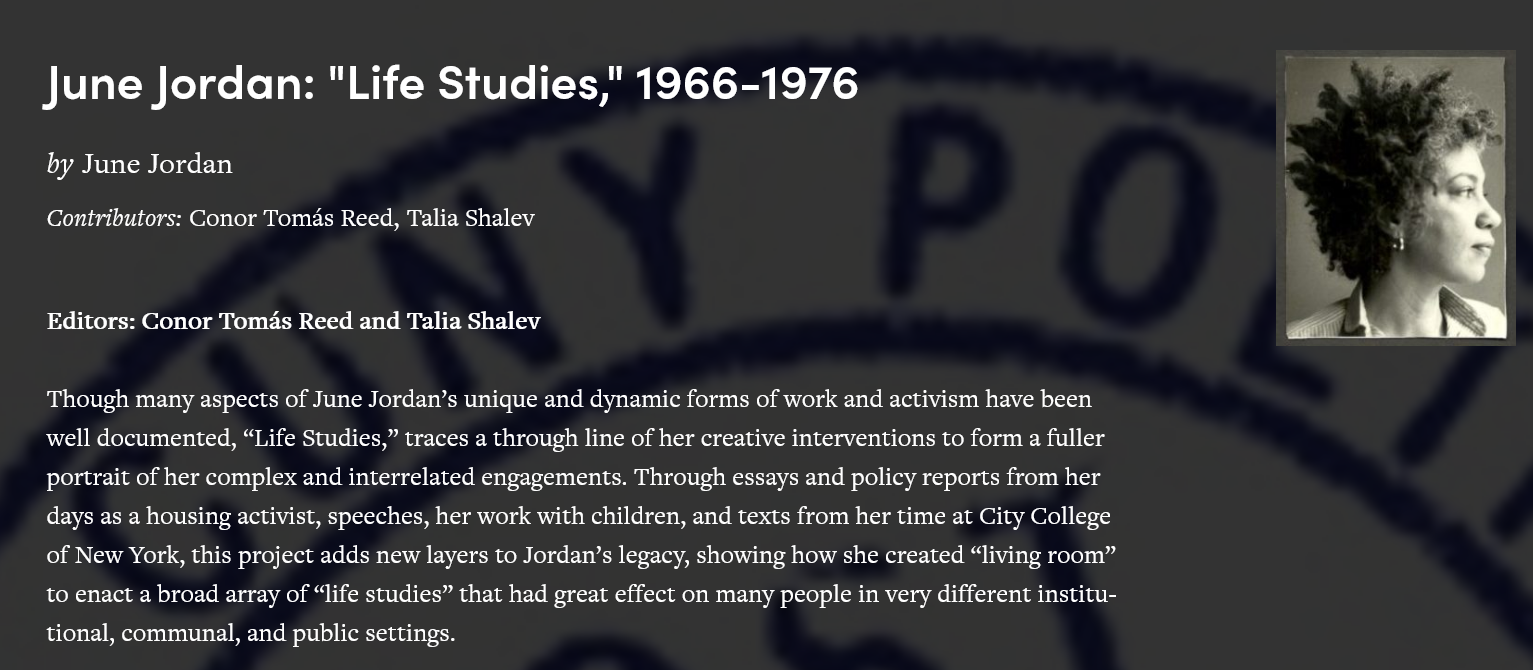
- “LIFE STUDIES,” 1966-1976
- INTRODUCTION
- A NOTE ON THE TEXTS
- EXCERPT FROM BRIEF HISTORY OF THE LOWER EAST SIDE
- EXCERPT FROM THE DETERMINING SLUM
- THE VOICE OF THE CHILDREN, INC
- EXCERPT FROM CHILDREN AND THE HUNGERING FOR
- OCEAN HILL BROWNSVILLE I.S. 55 GRADUATION SPEECH
- OUR EYES HAVE GROWN
- THE CITY AND THE CITY COLLEGE: AN OFF-CAMPUS, OFF-CAMERA PERSPECTIVE
- STATEMENT AT CUNY BOARD OF HIGHER EDUCATION TUITION HEARING
- ACKNOWLEDGEMENTS
- BIOGRAPHICAL NOTES
- LOST & FOUND
You can look forward to these Lost & Found publications coming to Manifold soon:
- Toni Cade Bambara: "Realizing the Dream of a Black University,” & Other Writings (Parts I & II)
- Jack Forbes: "Yanga Ya," Selected Poems & The Goals of Education (Parts I & II)
- Adrienne Rich: Teaching at CUNY, 1968-1974 (Part I & II)
Launching Lost & Found: Light Relief Series I on Manifold
During the pandemic, Lost & Found: The CUNY Poetics Document Initiative has centered its energies on keeping creativity and connection alive in our extended community. Grounded in collectivity, friendship, archival recovery, and collaboration, our publishing practice is driven by a deeply felt belief that poetry has the power to transform the way we understand and act in and on the worlds we inhabit. In some ways, this ethos readied us to respond when faced with the compounding duress of COVID times.
In the early weeks, we sent out a call for Lost & Found: Light Relief. A WPA-inspired system to distribute resources to our community, we asked CUNY and Lost & Found-affiliated poets/writers, archivists/scholars, and students/artists to dive into their own personal archives to publish short-form digital works. We sought readily available fragments from works in progress, or works completed, rather than new work, hoping to render Light Relief, a light lift for contributors.
The work we received was dynamic and enthralling. From earliest stages of a forming thought, to fragments of research, or finished pieces, all of the work contributed is steeped in the spirit of Lost & Found—a perseverance through uncertain times via poetry and collectivity. The kind of work presented in Light Relief needed to be housed on a platform that allows these works to exist as dynamically as they are, so Lost & Found teamed up with CUNY’s Manifold team to launch all five Series of Light Relief as well as publications by Audre Lorde and June Jordan from our publication series.
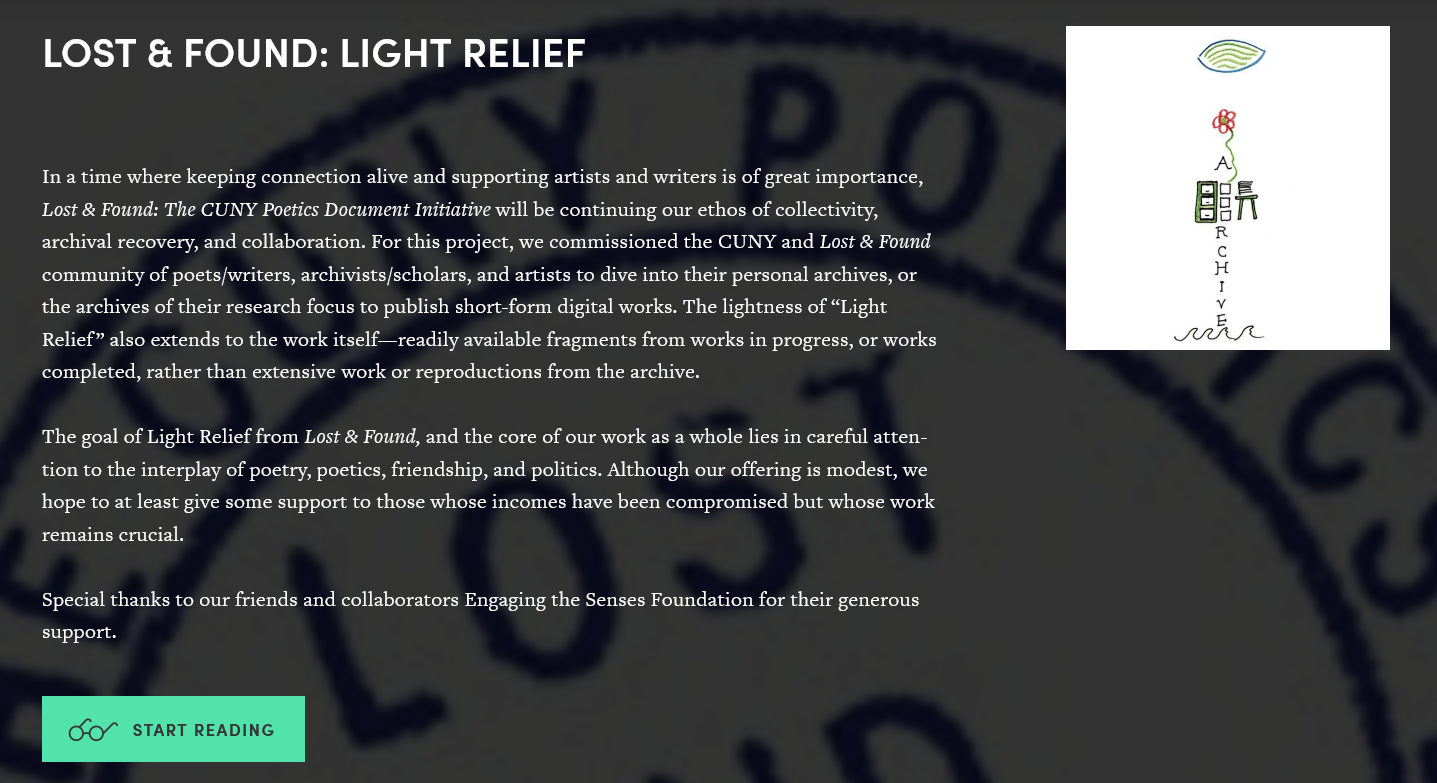
You can read Lost & Found Light Relief, Series One here, featuring poetry, sound, and archival discovery by:
- Adjua Greaves | The Fruits of the Crown, 2020 | Epic poem. | Google Document shared in draft form with Max Pierson who declared its necessity.
- Cristina Elena Pardo Spanish-English translation by Alexander Soria | Two Poems
- Lindsey Eckenroth (in collaboration with composer Whitney George and audio engineer Nicholas R. Nelson) | When I dream, I dream of you
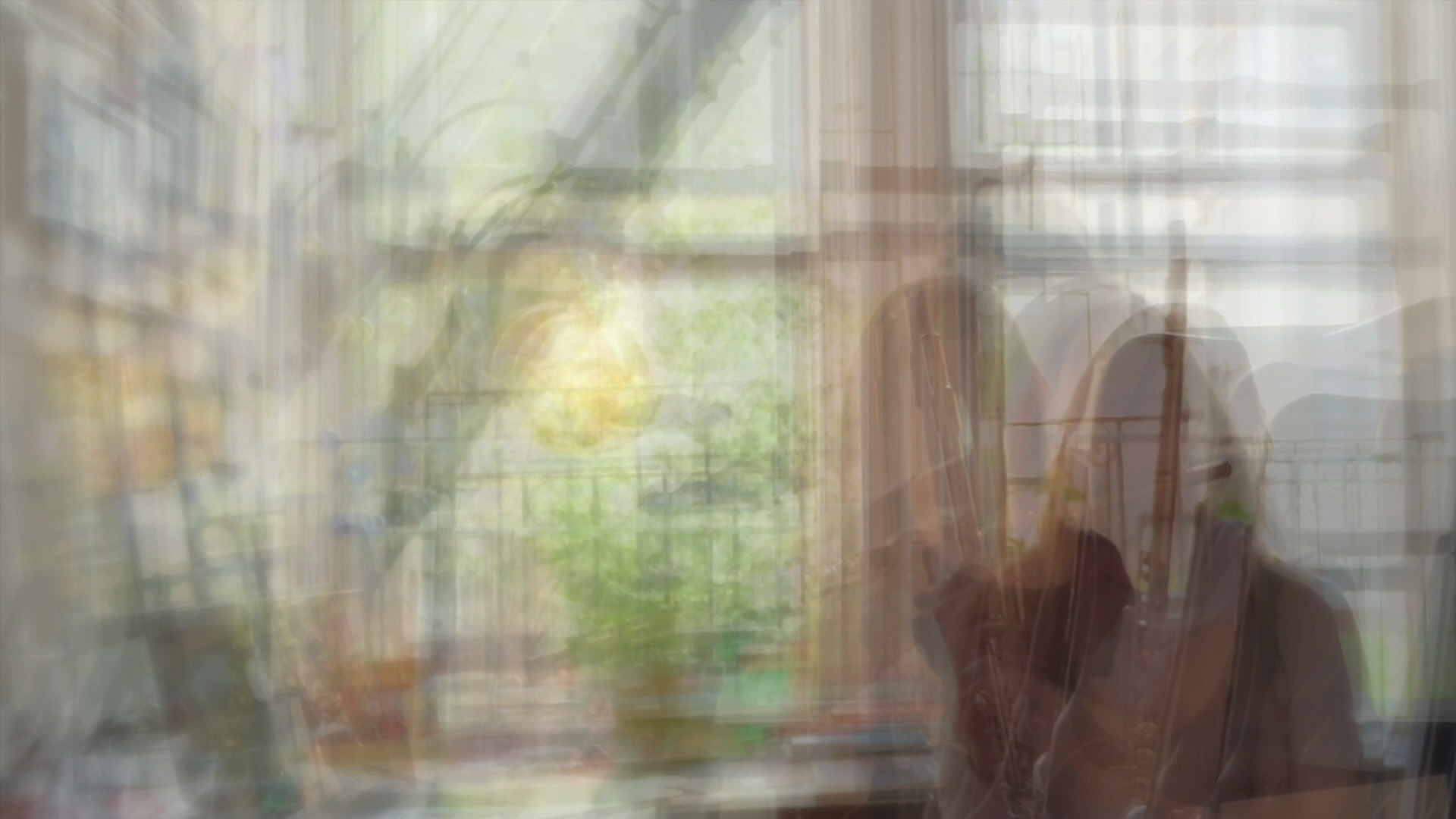
- No Land | untitled
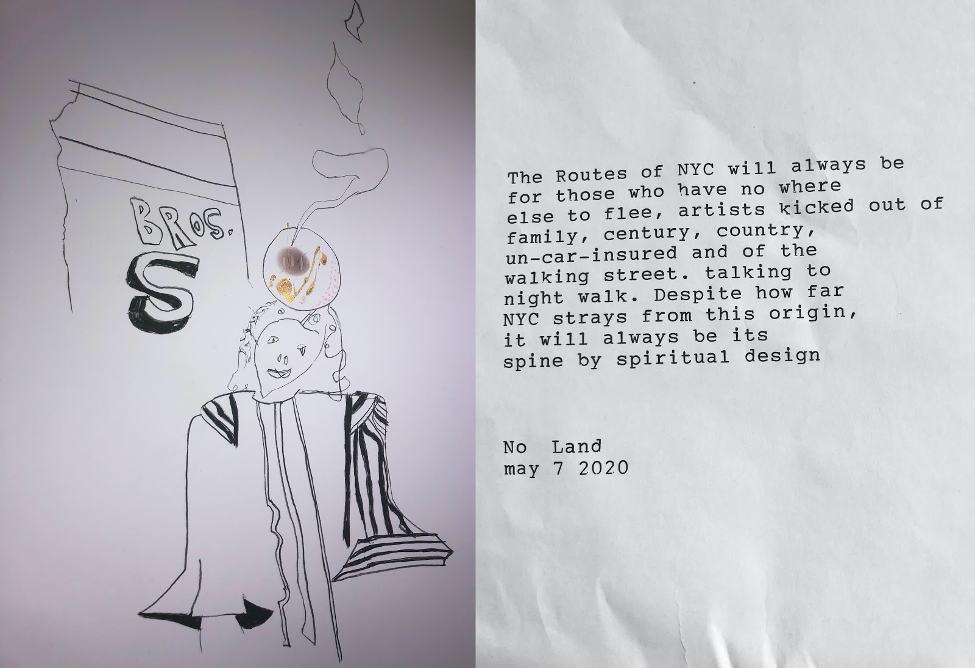
- Sara Deniz Akant | Once There Was and Once There Wasn’t : The Story of P
- Jacques Viau Renaud presented and translated by Ariel Francisco | FOR AN ASSASSINATED BLACK LEADER, & (the last three sections of “PERMANENCE OF THE CRY”)
- Grisel Y. Acosta | To Split a Plantain
- John Wieners presented and edited by Michael Seth Stewart | Untitled 1962 Journal by John Wieners: Excerpts from a Work in Progress
- Phoebe Glick | Three Poems
- Senia Hardwick | Images
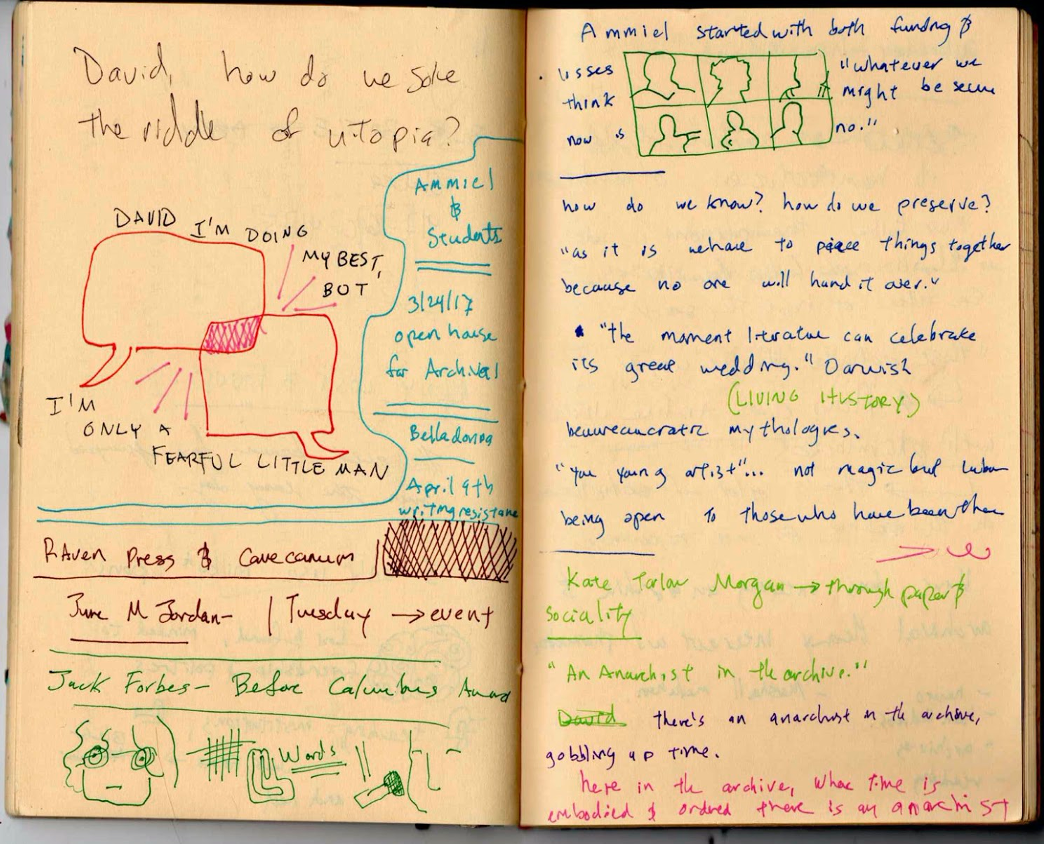
Read more about the poets and artists featured in Series One here.
Partnering with Manifold #LFxManifold
With Manifold, you can publish dynamic digital texts with rich media support, powerful annotation tools, and robust community dialogue: a perfect virtual home for Lost & Found, born out of and flowing into relationships between poets, thinkers, and their broader contexts. Lost & Found is a living archive, and the publications available on Manifold are living digital works.
CUNY’s Manifold, led by Prof. Matthew K. Gold with support from colleagues Robin Miller and Wendy Barrales, is a free publishing platform for the CUNY community. The Manifold project is a collaboration between the CUNY Graduate Center, the University of Minnesota Press, and Cast Iron Coding to create an intuitive, collaborative, open-source platform for scholarly publishing. CUNY’s Manifold instance has been supported by OER grants from the CUNY Office of Library Services, the State of New York, and the CUNY Graduate Center.
“The CUNY Manifold team is delighted to partner with the Center for Humanities and Lost and Found on this amazing project. We’ve been developing the CUNY instance of Manifold as a hub for open educational materials (OER) across the 25-campus CUNY system, and these primary source documents are an amazing trove of materials that will be of wide interest and that will be used in a number of CUNY classrooms.”
—Matt Gold
“Manifold employs responsive design that enables the platform to look and perform as well on a cell phone as it does on a laptop computer. But that flexibility poses challenges when dealing with poetic texts that have specific line breaks and formats that must be respected. Working with the Lost & Found team has brought such interesting challenges to us, and will help us in our future work with poetry publishers.”
—Robin Miller
"Finding the right format for true on-line presentation of texts that use the page as a physical and imaginary field has been a long standing problem in digital work. While we remain firmly rooted in the physical object of the book, in all its forms, we couldn’t have imagined a more auspicious on-line debut than through our work with colleague Matt Gold and our partnership with Manifold, in which so many of these issues have been handled with great elegance and user-friendliness."
—Ammiel Alcalay
"I'm especially happy that the first wave of CUNY poet-activist-pedagogy Manifold editions by Audre Lorde and June Jordan are available through CUNY's Manifold. An open online edition like this activates poetry as a knowledge practice in classrooms across CUNY while ensuring the continual presence and influence of these authors in a CUNY-specific context, the context in which they sharpened their craft and shaped institutional futures as part of student-led struggle. To say that the classes they taught, the lessons they learned, and the poems they wrote while doing so are still necessary is an understatement - these teaching documents and creative texts help readers understand how poetry and pedagogy can and do work together toward collective uplift, especially at CUNY, institutional home to so many poets."
—Kendra Sullivan
